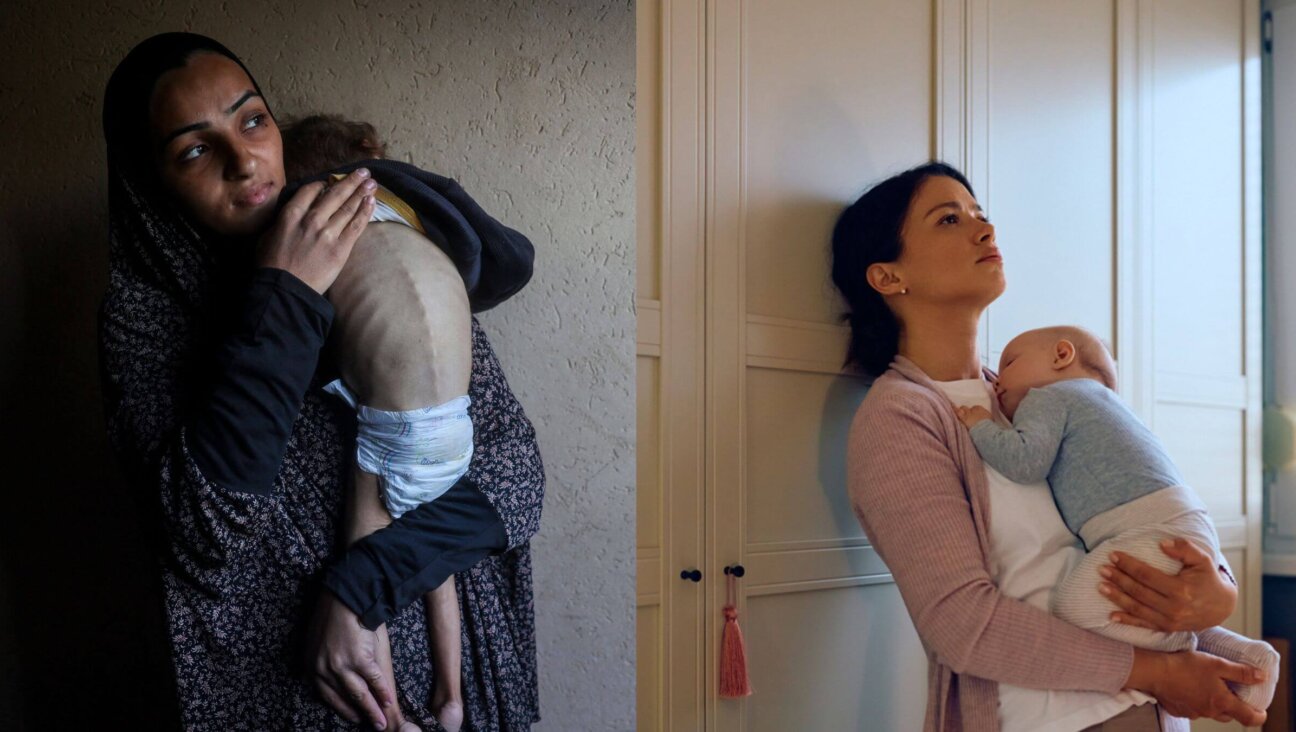I went to Israel for my bat mitzvah at the Kotel but an angry ultra-Orthodox mob tried to stop it
I came as a girl wanting to read Torah, and left as a woman ready to fight for everyone’s right to pray as they choose

Graphic by Angelie Zaslavsky
Every time that I mentioned that I was going to have a bat mitzvah to my friends at school, they would say that they wanted one, too. They imagined a big celebration, a party with cake and games and dancing. They never realized it requires a lot of hard work.
For me, that work was a part of what made becoming a bat mitzvah such an achievement. I spent the last year working with my tutor, Linda Elman, preparing for the big day. It was especially hard because when I started, I didn’t know any Hebrew. Little did I know, the hardest part would not be learning my Torah portion but facing pressure from a mob of strangers not to recite it.
I never wanted my bat mitzvah to be in a synagogue in Seattle, where I live. I thought that such a special occasion deserved a special location. I wanted to connect with my heritage and be with my godfather, Hen Mazzig, who grew up in Israel and is a writer, speaker and activist for the Zionist cause.
That is why I decided to have the ceremony at the Kotel, the Western Wall in Jerusalem’s Old City. It was also meaningful for me to have my bat mitzvah at the Kotel because I wanted to be a part of the movement to gain more rights for women.
For several decades, a group called Women of the Wall has been fighting for those rights with pilgrimages to the Kotel for Rosh Chodesh, the celebration of each new Hebrew month. Because Israel’s ultra-Orthodox rabbinate controls the holy site, it is divided into a men’s side and a women’s side. Women are not allowed to read from the Torah at the main Kotel plaza, only at Robinson’s Arch, a site off to the side that in recent years has been designated for egalitarian prayer.
Women of the Wall has continued to press for access to the Kotel itself, occasionally smuggling in Torah scrolls, only to have their gatherings disrupted by catcalls and worse from Orthodox worshippers. That’s what happened to me on my special day.
At 7 a.m. on Friday, Rosh Chodesh for the Hebrew month of Av, as I walked into the women’s section of the Kotel with my moms and members of Women of the Wall, hundreds of men and boys surrounded us and yelled that we were a disgrace to Judaism.
Instead of being afraid, I imagined that they were fans who came to the Kotel to celebrate with me. It reminded me of my daydream of being a star goalkeeper making a decisive save in the World Cup final, where the crowd goes wild cheering for me.
I still felt scared, but the Women of the Wall community helped make me feel safe and surrounded by love. We had just met the members of this group minutes before, while entering the Kotel gate. Though I didn’t know them, they made me feel secure in a foreign place.
Getting bat mitzvahed at the Kotel was not just for me, but for all the girls to follow. Though I was not able to read from the Torah as I had planned, I hope that Jewish girls after me will have this basic right.
As Yochi Rappeport, executive director of Women of the Wall, told me, “You’re not just fighting for your right to pray. You’re paving the way for your generation and generations to come.”
I never thought that as soon as I became a bat mitzvah, everything would change. I know I still have a lot ahead of me in the process of becoming an adult. It will be years before I can drive, get a job, rent an apartment, or have kids of my own.
But when I suddenly found myself surrounded by people who wanted to deny me my right to participate in this timeless Jewish ritual, everything did change.
I came to the Kotel as a girl to read a portion from the Torah. I left as a woman with the responsibility to stand up for everyone’s right to recite the prayers of their choice at the place of their choosing.






















